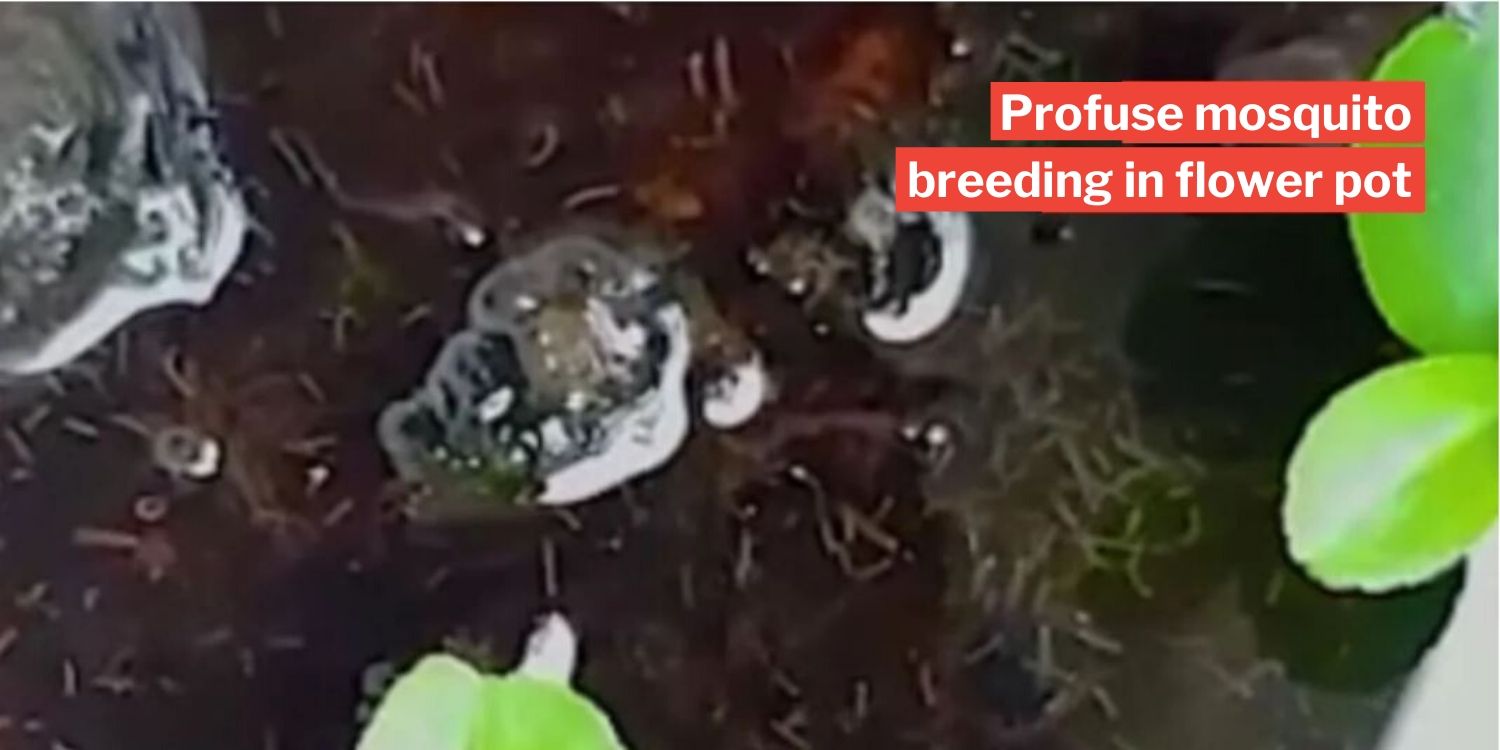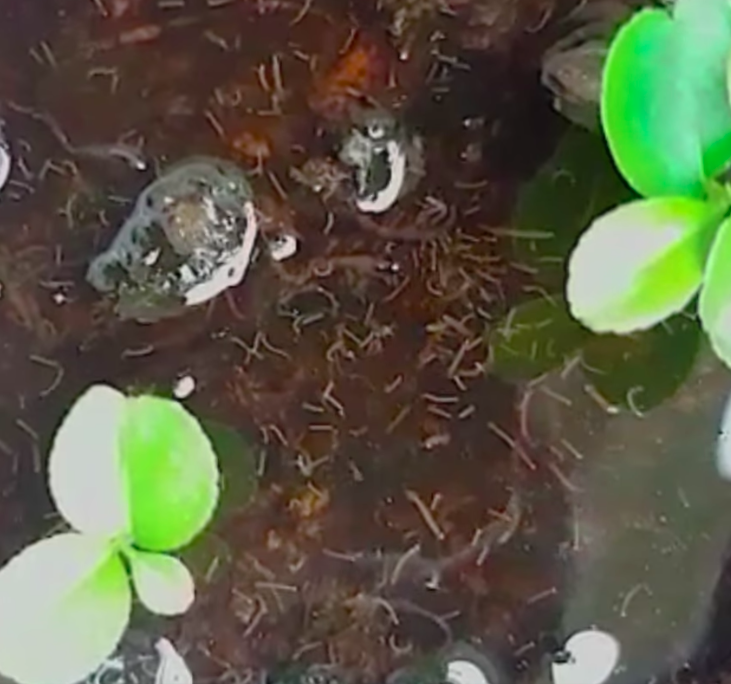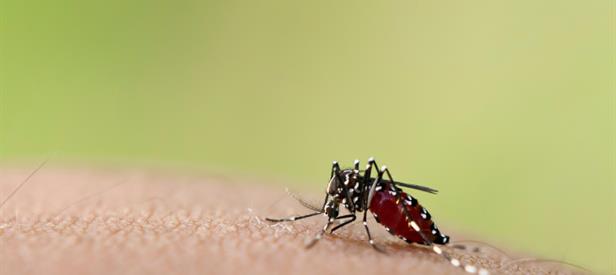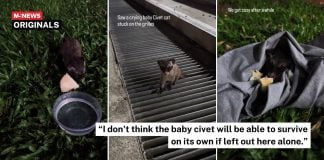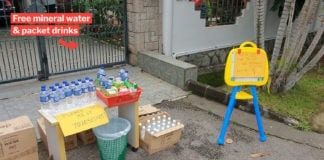NEA Finds A Few Hundred Mosquito Larvae In Home Located In Dengue Cluster, Will Continue Inspections
Dengue cases in Singapore are increasing at an alarming rate, having reached 15,270 as of Wednesday (8 Jul).
Thus, the National Environment Agency (NEA) is stepping up protection measures by conducting more routine inspections at residential areas.
While some dengue teams have made macabre discoveries like human remains, others just make disgusting finds – like a whole water feature filled with mosquito larvae on its surface. Check out the video here:
Disgusting find in dengue cluster
In a Facebook post on 3 Jul, the NEA shared a video of the nauseating sight.
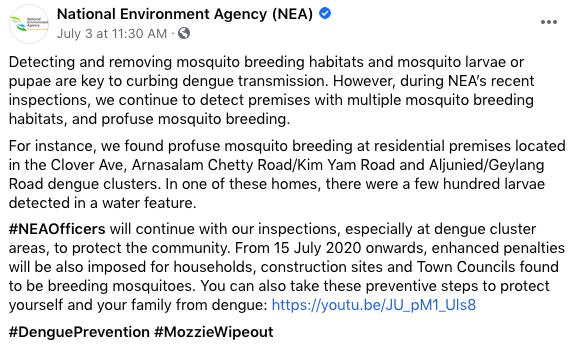
It was found at a home located in one of the dengue clusters around Clover Ave, Arnasalam Chetty Road/Kim Yam Road and Aljunied/Geylang Road.
Mosquito larvae breeding in stagnant water
At first glance, netizens can already spot the mosquito larvae squirming in the stagnant water.
According to the post, this “water feature” alone was filled with a few hundred larvae, too much to even count.
The NEA’s intention through the post was ostensibly to shed light on the urgent need for citizens to be on their toes, and detect and remove such mosquito habitats, as dengue persists to plague the nation.
It’s horrifying as the agency says it continues to detect premises with multiple mosquito breeding habitats and profuse mosquito breeding.
Heavier punishments for mosquito breeders
This water feature was not the only breeding habitat found during inspections. In fact, it has also uncovered pails and even a jacuzzi filled with growing mosquitos.
To keep dengue in check, the NEA is introducing heavier punishments for those found breeding mosquitos at home from 15 Jul onwards.
It will also continue its inspection and community outreach efforts.
Look out for mosquito larvae
Going by the worrying trend, Singapore’s dengue cases have the potential to reach an all-time high in 2020.
Citizens are hence encouraged to do their part by frequently clearing stagnant water in locations like flower pots and bamboo holders and alerting those around us to do the same.
Find out more about how to help here.
Featured image adapted from Facebook.
